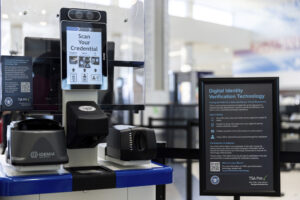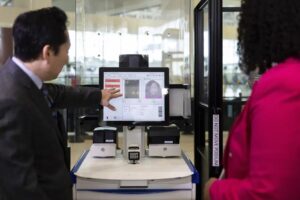
How Technology Enhances Daycare Centers in Jersey City
Introduction: Daycare centers in Jersey City are increasingly integrating technology to enhance safety, learning, and communication. This trend is transforming the daycare landscape, offering numerous benefits for children, parents, and educators. Enhanced Safety Measures: One of the primary concerns for parents is the safety of their children. Daycare centers in Jersey City are leveraging advanced technology to ensure the highest safety standards. Surveillance cameras provide real-time monitoring, allowing parents to check in on their children at any time. These systems not only monitor the kids but also secure the environment against potential threats. Digital check-in and check-out systems have replaced traditional paper sign-in sheets. These systems ensure that only authorized individuals can pick up the children, minimizing risks. The peace of mind that comes with knowing your child is safe and secure is invaluable. Detailed Safety Protocols: In addition to surveillance and digital check-in systems, many daycare centers have adopted advanced safety protocols. Biometric systems, such as fingerprint scanners, further enhance security, ensuring that only authorized personnel can access the premises. Emergency response systems, including automated alerts and lockdown capabilities, are also in place to handle any unexpected situations swiftly and effectively. Moreover, technology has enabled the implementation of comprehensive health monitoring systems. With the ongoing concerns around health and hygiene, daycare centers use digital health check tools to track symptoms and ensure that all children and staff are healthy before entering the facility. These measures provide an additional layer of safety, giving parents confidence in their child’s well-being. Interactive Learning Tools: The use of technology in daycare centers extends beyond safety. Modern daycare centers in Jersey City, such as The Waldo International School, are equipped with tablets, interactive whiteboards, and other digital devices that make learning fun and engaging. Educational apps cover a wide range of subjects, from basic literacy and numeracy to science and art. Imagine toddlers learning their ABCs through a game with a dancing dinosaur or practicing numbers with a talking turtle. These interactive tools are designed to captivate young minds, making learning enjoyable and effective. The excitement and curiosity that technology brings into the classroom enhance the educational experience. Enhanced Curriculum Development: Technology also plays a critical role in curriculum development. Digital platforms allow educators to design and implement customized learning plans tailored to each child’s needs. These platforms provide a wealth of resources, from interactive games to virtual field trips, that enrich the learning experience. For instance, children can explore the solar system through virtual reality or participate in interactive storytelling sessions that develop their language skills. These immersive experiences foster a love for learning and encourage children to explore new concepts with enthusiasm. Support for Educators: Teachers in daycare centers juggle multiple responsibilities. Technology provides tools to help manage tasks more efficiently. Digital lesson planning software enables teachers to organize activities and ensure a balanced curriculum. These platforms help create engaging lessons tailored to the diverse needs of students. Furthermore, technology facilitates better communication between teachers and parents. Apps and platforms provide real-time updates on a child’s activities, progress, and well-being. Parents receive photos, videos, and detailed reports, staying connected to their child’s daily experiences. Professional Development and Training: Technology also supports educators’ professional development. Online training modules and webinars allow teachers to stay updated on the latest educational practices and technological advancements.






































